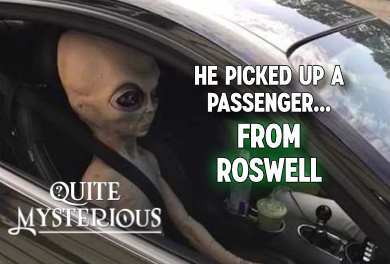Space & Astronomy
February 29, 2016 · 20 comments
20 comments

Could nuclear weapons save the planet ? Image Credit: NASA
While some researchers have been coming up with ways to slowly nudge an asteroid off course, scientists in Siberia have been pursuing a decidely less conservative approach to the problem.
With the help of Tomsk State University's SKIF Cyberia supercomputer, the team has been able to calculate what it would take to blow up an incoming asteroid using nuclear weapons without running the risk of having radioactive fragments raining back down on to the Earth afterwards.
Their findings suggested that to obliterate a 200m-long asteroid it would take a one megaton warhead - the equivalent to one million tons of TNT ( or 66 Horishima bombs. )
They also deemed it important to blow the asteroid up as early on as possible because, given that many potentially dangerous asteroids pass us by multiple times, the nuke could be detonated while the object was moving away from us rather than directly towards us.
This, coupled with detonating the nuke behind the rock rather than in front of it, could help to minimize the risk that we would be bombarded with radioactive debris afterwards.
Source: Independent | Comments (20)
Russia calculates how to nuke an asteroid
By T.K. RandallFebruary 29, 2016 ·
 20 comments
20 comments
Could nuclear weapons save the planet ? Image Credit: NASA
Russian scientists have been determining how to use nuclear weapons to protect the Earth from asteroids.
There's no denying that a sufficiently large space rock could prove catastrophic were it to ever hit the Earth - a fact that has prompted a renewed effort in recent years both to catalog any potential threats and to develop new ways of stopping an apocalyptic asteroid before it can hit us.While some researchers have been coming up with ways to slowly nudge an asteroid off course, scientists in Siberia have been pursuing a decidely less conservative approach to the problem.
With the help of Tomsk State University's SKIF Cyberia supercomputer, the team has been able to calculate what it would take to blow up an incoming asteroid using nuclear weapons without running the risk of having radioactive fragments raining back down on to the Earth afterwards.
They also deemed it important to blow the asteroid up as early on as possible because, given that many potentially dangerous asteroids pass us by multiple times, the nuke could be detonated while the object was moving away from us rather than directly towards us.
This, coupled with detonating the nuke behind the rock rather than in front of it, could help to minimize the risk that we would be bombarded with radioactive debris afterwards.
Source: Independent | Comments (20)

The Unexplained Mysteries
Book of Weird News
AVAILABLE NOW
Take a walk on the weird side with this compilation of some of the weirdest stories ever to grace the pages of a newspaper.
Click here to learn more

Support us on Patreon
BONUS CONTENTFor less than the cost of a cup of coffee, you can gain access to a wide range of exclusive perks including our popular 'Lost Ghost Stories' series.
Click here to learn more
Spirituality, Religion and Beliefs
Ghosts, Hauntings and The Paranormal
UK and Europe
Ancient Mysteries and Alternative History
Total Posts: 7,751,681 Topics: 324,022 Members: 203,511
Not a member yet ? Click here to join - registration is free and only takes a moment!
Not a member yet ? Click here to join - registration is free and only takes a moment!



































Please Login or Register to post a comment.